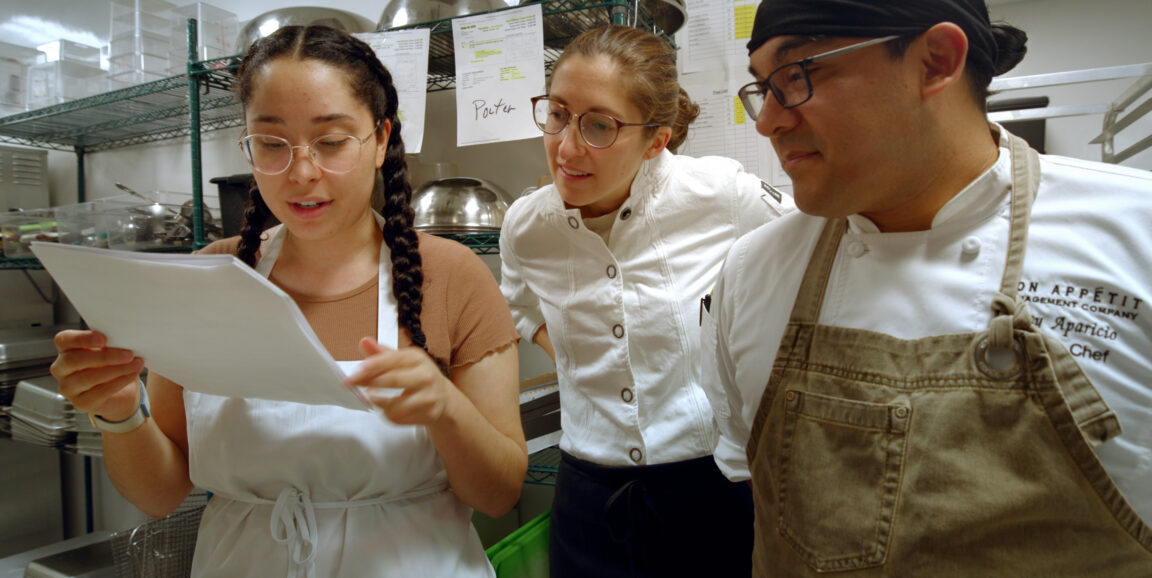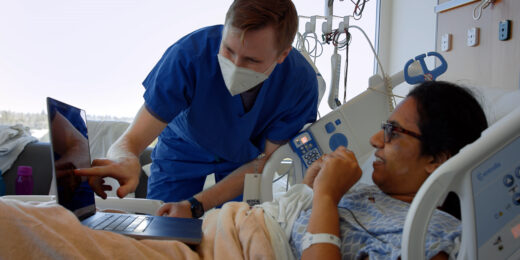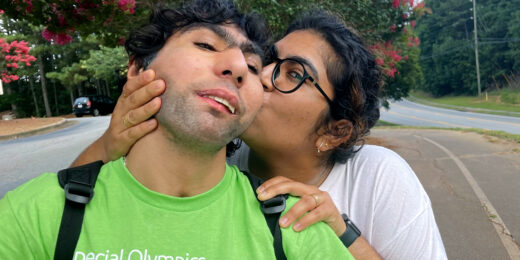In this We Are Stanford Med series, meet individuals who are shaping the future of medicine. They hail from all over the globe and come to Stanford Medicine carrying big ideas and dreams.
At first glance, the dual roles of physician and chef may seem like an unlikely pairing. But for Carlie Arbaugh, MD, Chef, it was the parallels she found in the culinary arts and surgical care that drew her to each.
Both fields demand meticulous attention to detail and the ability to think on your feet when things don't go as planned. Teamwork is essential in both the operating room and the kitchen. "You have your executive chef, sous chefs, line cooks, the person who's washing dishes, the front of house staff, including the waiters and host," she said. Similarly, in the operating room -- you have the surgeon, anesthesiologist, resident surgeon and anesthesiologist, scrub tech, and circulator. And at the end of the day, you're caring for people in both fields."
As an academic general surgery resident at Stanford Health Care, Arbaugh was able to dedicate two years in the middle of her clinical training to professional development. She used it to complete a certification in culinary arts as well a certification in plant-based nutrition and has since found ways to implement that training into her work as a physician, educator, and researcher.
Arbaugh serves as a teaching assistant for Stanford Medicine's Teaching Kitchen elective class, which is taught by fellow physician-chef Michelle Hauser, MD. The class not only teaches practical kitchen skills and healthy cooking, but how to communicate what they've learned in counseling patients. Arbaugh has been actively engaged in various initiatives promoting plant-based nutrition, spanning planetary health and nutrition security advocacy; education of healthcare professionals, patients, and the community, and collaborating with food services leadership and dietitians on improvements in hospital food.
This profound notion to care for people through food started from a very young age. "I grew up in a home where both my mom and dad enjoyed cooking, but were also very busy working and raising three children," she said. "I saw cooking and helping with meals, whether it was setting the table or doing the dishes, as a way of caring for them," she recalled. Arbaugh grew up in Elverson, Pennsylvania, a small rural town with one stoplight and a population of about 1,000 people. "My childhood dream was to become a chef, move to a big city, and open my own restaurant," she said.
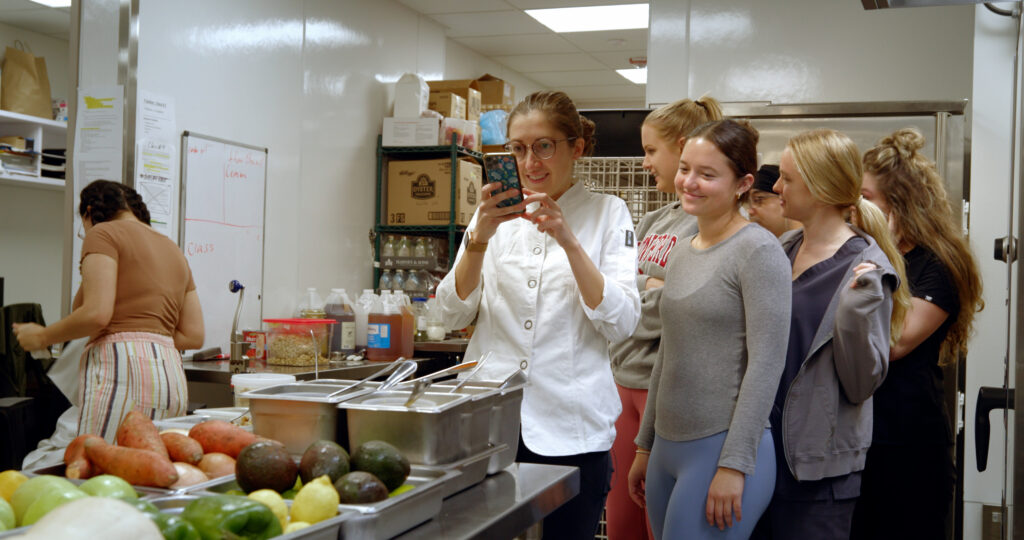
When she got to middle school and developed an interest in long-distance running, her outlook on food evolved and she began to think about the science of nutrition and athletic performance. "I really got interested in the importance of plant-based, whole foods for optimal athletic performance," said Arbaugh. "I noticed that when I ate things that were home cooked and were primarily fruits and vegetables and grains, I felt and performed better than when I ate more processed foods."
Before her senior year of high school, Arbaugh attended a unique scholarship program called Pennsylvania Governor's School for the Sciences where she spent the summer on a college campus (Carnegie Mellon University) and experienced what it was like to be a college student. She said that opened her mind to applying to college, ultimately leading her to study as an undergraduate in the College of Human Ecology and Division of Nutritional Sciences at Cornell University. That's where she discovered her passion for working toward health equity.
"For the first time I saw a really stark difference between the privilege, resources, and affluence of a prestigious university compared to a small rural town," she said. "And it's something that still drives me on a daily basis -- how to find ways to address those disparities and to provide better education, healthcare, and other opportunities for everyone."
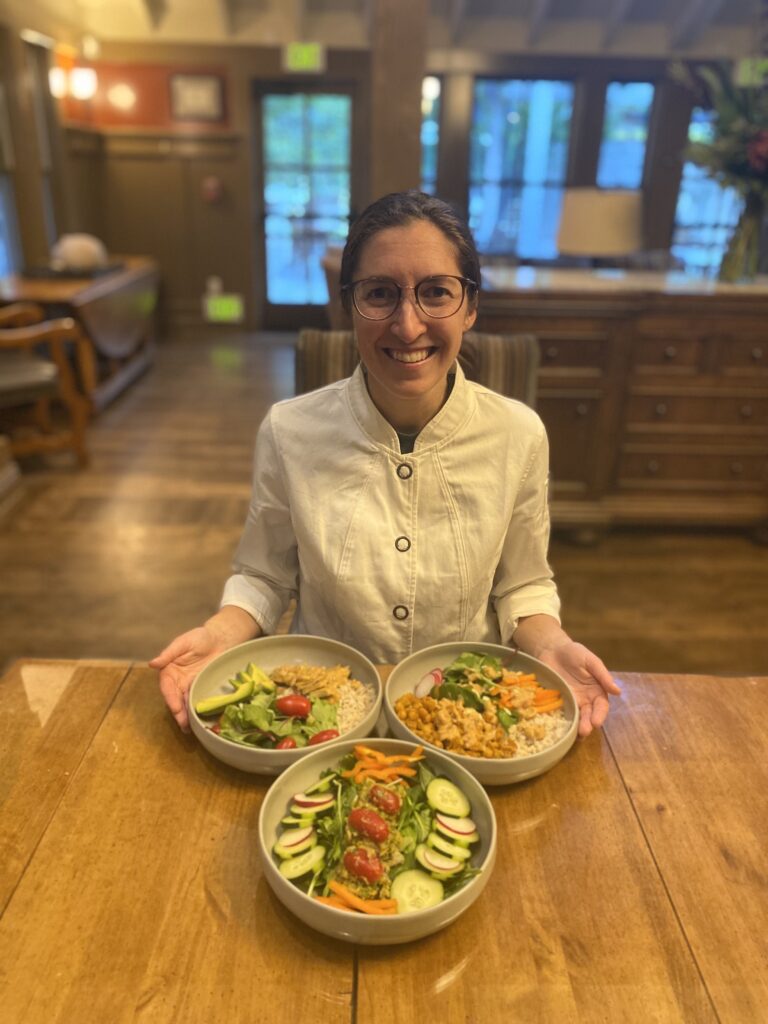
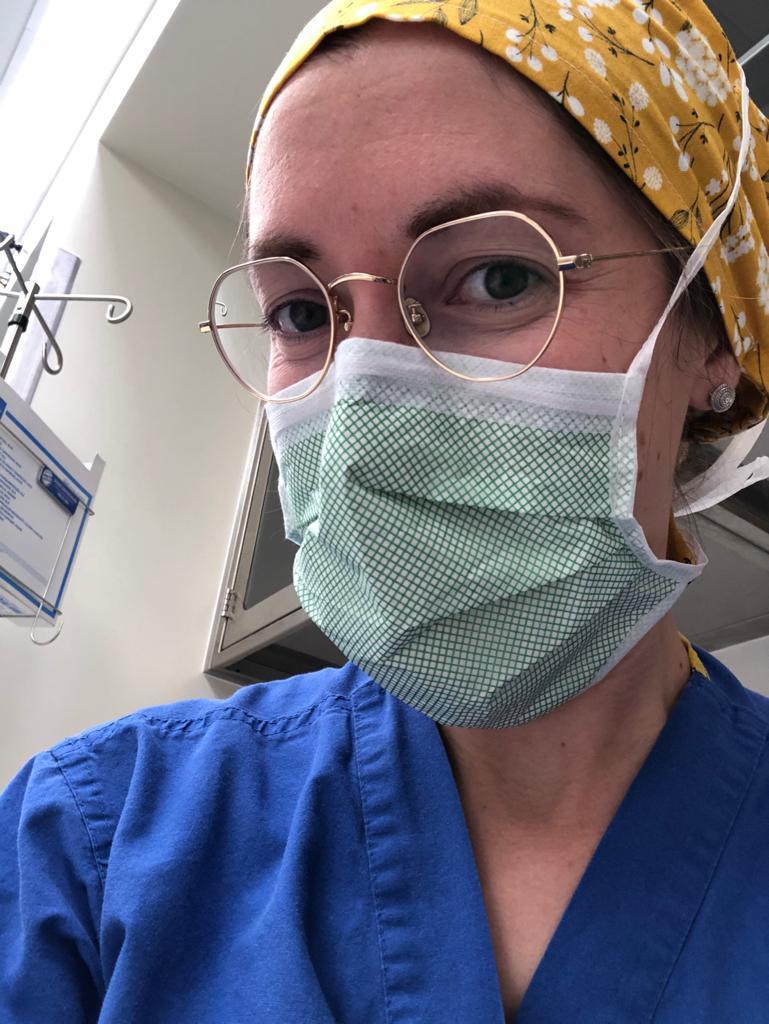
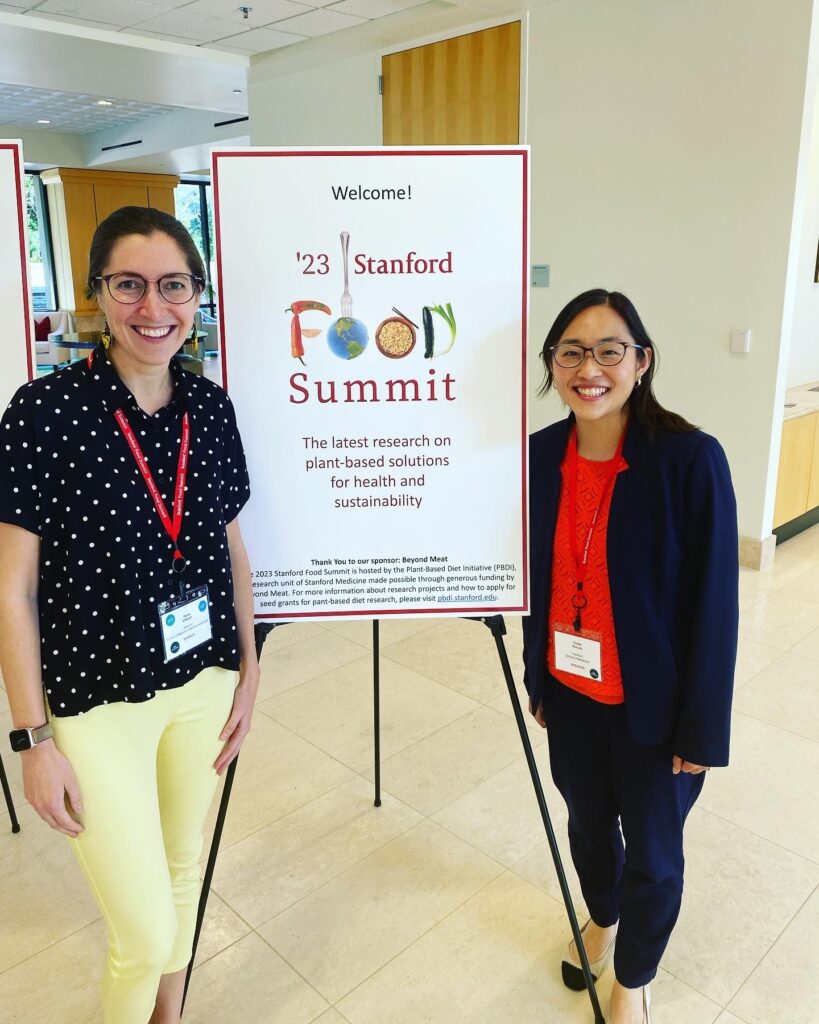
When it came time to apply for medical school, Stanford's eclectic nature seemed like a perfect fit. "I've kind of always been someone who's had a variety of interests and wanted to keep that diversity alive. And when I'm able to do that, I feel like I'm able to be a better version of myself," she said. "So when I was looking for medical school, I wanted a place that celebrated that. In addition to studying to become a physician, I could take classes in other schools and departments of Stanford, I could work on interdisciplinary projects and have other outlets."
Arbaugh graduated from the School of Medicine in 2019 and chose to continue at Stanford for her residency training. She's currently a fifth-year academic general surgery resident at Stanford Health Care. "I love that there's a strong combination of both medical and surgical care in general surgery," she said. "General surgeons are well-trained to care for very sick patients and to care for them when an operation or procedure is needed, but also when there's something nonsurgical and it can be managed medically."
Her pursuit of culinary training was driven by a passion deeply rooted since childhood.
I felt like that dream was never going to go away. It was just a life goal that I had to pursue.
Carlie Arbaugh
"I felt like that dream was never going to go away. It was just a life goal that I had to pursue," she said. And although this path may seem unconventional, as a surgeon and a chef, she recognizes the dual importance of food -- both as a source of enjoyment, culture, and social connection, as well as a powerful tool for health promotion and disease prevention and treatment.
"We're always looking for the latest and greatest procedure, medication, or other intervention, which is wonderful and needed," she said. "But there is also a lot of power in lifestyle -- in changing the foods that we're eating, the activity that we do."
And all of this is just fun and fulfilling for Arbaugh. "It's bringing things full circle for me," she said. "The kitchen is one of my happy places. I like focusing on a project, being creative, and working with my hands. And at the end there's something delicious and nourishing to eat and share with others, which is the best part."
Read more We Are Stanford Med stories here; and watch the video series here.


